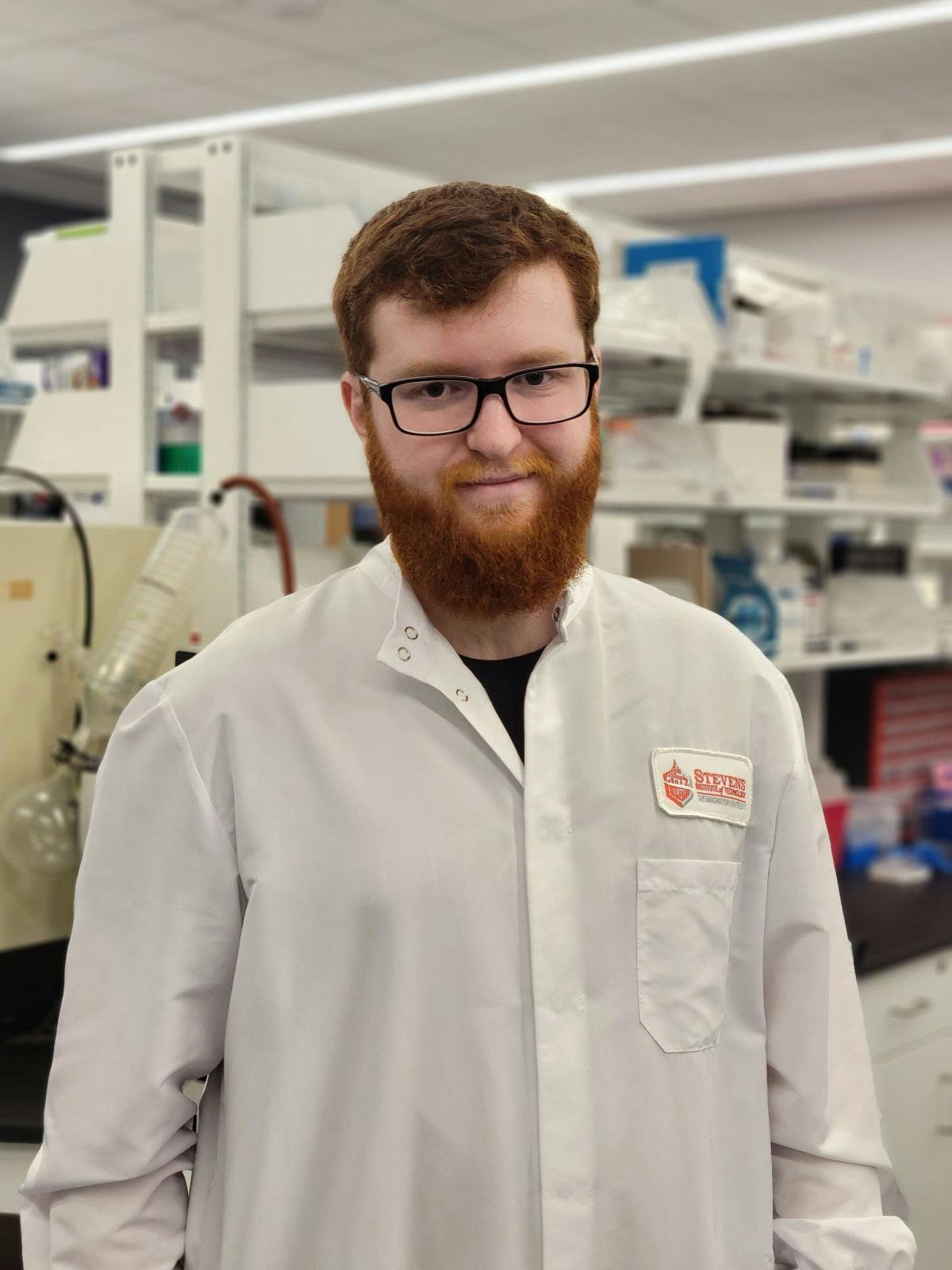Student Q&A: Biomedical Engineering Master’s Student Researches Nanoparticles to Improve Drug Delivery for Colon Cancer
Jonathan Makris ’24 is a member of Professor Hongjun Wang’s laboratory, where he is conducting nanoparticle research with hopes of developing a better method for treatment of colon cancer.
Jonathan Makris is a master’s student in the Department of Biomedical Engineering at Stevens Institute of Technology, currently working in Professor Hongjun Wang’s laboratory. This lab focuses on 3D tissue reconstruction, biomaterial design, regeneration engineering and nanomedicine. For his thesis, Makris researches a specific nanoparticle as a method of drug delivery to treat colon cancer. Use of nanoparticles in drug delivery allows for drugs to be delivered at higher concentrations to areas affected by cancer. Makris joins Jeremiah Chinwendu ’25, a junior undergraduate biomedical engineering student, to discuss his research and its applications in medicine.
Chinwendu: How did you decide on your thesis?
Makris: When I was doing a lab tour at Stevens, I got the chance to meet Dr. Wang in person. He talked about the nanoparticle research he was working on, and it caught my interest. After I asked him to be my thesis advisor, he showed me everything he was working on in the lab and gave me the idea to focus on using nanoparticles for colon cancer treatment.
C: What steps did you take before you began your research?
M: I worked with my advisor to find a solid baseline from which to expand. I've spent a lot of time learning basic lab protocols and techniques by shadowing other lab members.
C: What is your role in the lab?
M: I am a full-time researcher. Most of my time in the lab is spent running trials related to my thesis. Once a week, all other researchers in the lab gather to present the research they are doing or show presentations for a conference they are going to; and everyone else gives feedback for improvement. I give my own insight during these meetings on how projects and presentations can be improved. In addition, I receive feedback on my own research, and I work with others to improve.
C: What is the goal of your research?
M: The goal of my research is to find an alternative way to target colon cancer cells by using nanoparticles to stabilize the drug and deliver dosages inside cells.
C: How do you hope this technology can be applied in the future?
M: This technology is going to be quite revolutionary in the future. It allows for better specificity when targeting diseases, thus mitigating the negative impacts of broad spectrum treatments. Nanotechnology has a vast array of applications, soI hope this can be used not only in cancer research, but also in other areas of medicine.
C: What does a typical day in the lab look like?
M: Most of the protocols for the experiments in the lab involve growing, culturing and maintaining cells. These cells are used to test both medications and nanoparticles. I am focusing on a specific cell for my research, and I work very closely with someone who helps me to create and store my nanoparticles for later trials. I culture the cell through its cell line to make sure I always have enough for future trials. I also employ different methods of storage based on my needs, such as freezing some cells to preserve them for much longer.
C: How has your master’s education prepared you for life after Stevens?
M: It gave me a lot of exposure to the different types of machines and techniques used in a lab. In addition, the lab meetings have broadened my scope by allowing me to learn about different areas of biomedical research. I hope to apply the knowledge I have gained throughout this experience to research and development.
C: What advice would you give to somebody hoping to obtain their master’s degree in the future?
M: First, get involved as much as you can. It is easy to feel lost while going through the process, so talking to professors and even other master’s students can help you get through that. Second, do not be afraid to experiment with the parameters of your research. This will not always turn out how you want it to, but that shouldn’t discourage you. As you do multiple trials of your experiments, eventually you will find something that works, and you can work with others to try to make that as reproducible as possible.
Wang’s research team includes master’s, Ph.D. and undergraduate students. His lab has a primary focus on tissue engineering.


